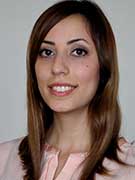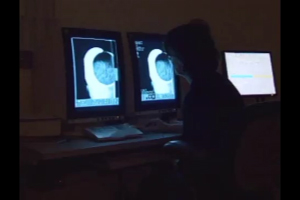Medicaid Expansion Improves Breast Cancer Screening for Low-Income Women
Released: November 30, 2015
At A Glance
- Researchers found that Medicaid expansion improves breast cancer screening adherence for low-income women.
- States had the option of expanding Medicaid as part of the Affordable Care Act.
- In 2012, low-income women in expansion states were 25 percent more likely to be screened for breast cancer than in 2008.
- RSNA Media Relations
1-630-590-7762
media@rsna.org - Maureen Morley
1-630-590-7754
mmorley@rsna.org - Linda Brooks
1-630-590-7738
lbrooks@rsna.org
CHICAGO — Low-income women in Medicaid expansion states in the U.S. are more likely to have a breast screening performed than those in non-expansion states, according to a study presented today at the annual meeting of the Radiological Society of North America (RSNA).
As part of the Affordable Care Act (ACA), states had the option of expanding Medicaid to provide coverage to people under 65 years of age living at up to 133 percent of the federal poverty level (FPL). California, Connecticut, Minnesota, New Jersey and Washington, as well as Washington, D.C., were among the first to adopt and implement the expansion by 2011.
"While increased use of screening mammography has significantly contributed to improved detection of breast cancer, substantial disparities in breast cancer screening exist among populations in the country," said the study's lead author, Soudabeh Fazeli Dehkordy, M.D., M.P.H., from St. John Providence Hospital in Southfield, Mich. "We sought to determine whether increasing access to health insurance through Medicaid expansion has resulted in improved breast cancer screening adherence."
Using data from the 2008 and 2012 Behavioral Risk Factor Surveillance System and adjusting for age, education, income and race, the analysis showed that low-income women in expansion states had a similar likelihood of being screened to those in non-expansion states in 2008. However, in 2012, after the early expander states implemented their programs, low-income women in expansion states were 25 percent more likely to be screened for breast cancer than those in non-expansion states.
"Understanding the impact of Medicaid expansion on breast cancer screening rates in early expander states can provide valuable insights that can be very useful to both state and federal policymakers when considering key health policy," Dr. Fazeli Dehkordy said.
Currently, 23 states have opted to expand Medicaid coverage, while six others are implementing alternatives. The remaining states elected not to implement the expansion program or are still in the process of considering it.
"Adoption of Medicaid expansion by more states can result in considerable improvement of disparities in breast cancer screening, leading to better health outcomes for all women across the United States," Dr. Fazeli Dehkordy said.
Co-authors on this study were Kelli Hall, Ph.D., Brady West, Ph.D., Vanessa Dalton, M.D., and Ruth C. Carlos, M.D., M.S.
Note: Copies of RSNA 2015 news releases and electronic images will be available online at RSNA.org/press15 beginning Monday, Nov. 30.
RSNA is an association of more than 54,000 radiologists, radiation oncologists, medical physicists and related scientists, promoting excellence in patient care and health care delivery through education, research and technologic innovation. The Society is based in Oak Brook, Ill. (RSNA.org)
Editor's note: The data in these releases may differ from those in the published abstract and those actually presented at the meeting, as researchers continue to update their data right up until the meeting. To ensure you are using the most up-to-date information, please call the RSNA Newsroom at 1-312-791-6610.
For patient-friendly information on breast cancer screening, visit RadiologyInfo.org.
Videos clips (.mp4 format)
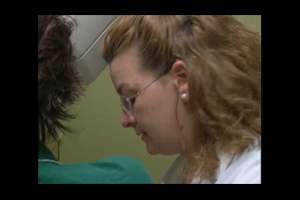
Video 1. Woman with radiologic technologist during screening mammography exam.
Download.mp4
(Right-click and Save As)
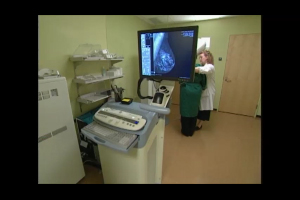
Video 2. Woman with radiologic technologist during screening mammography exam.
Download.mp4
(Right-click and Save As)
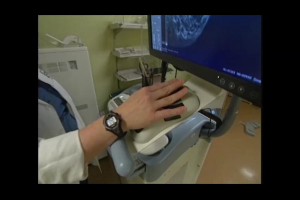
Video 3. Radiologic technologist capturing mammography images.
Download.mp4
(Right-click and Save As)
